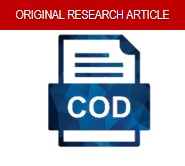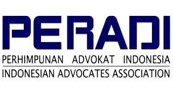Progressive Legal Approaches and the Prosecutorial Challenges in Executing the Indosurya Case
DOI:
https://doi.org/10.46924/jihk.v7i1.305Keywords:
Asset Recovery, Prosecutor, Execution of Verdicts, Progressive LawAbstract
Asset recovery for victims in money laundering cases (Tindak Pidana Pencucian Uang/TPPU) poses a significant challenge within Indonesia’s criminal justice system, particularly in complex cases such as the Indosurya Savings and Loans Cooperative (KSP Indosurya). This study aims to evaluate the technical, legal, and institutional barriers encountered by executing prosecutors in implementing court decisions intended to restore victims’ financial losses. The research employs a normative legal approach, incorporating case studies and analyses of statutory regulations, judicial decisions, and execution documents. The findings reveal key obstacles, including discrepancies between court rulings and the factual conditions of the seized assets, the absence of explicit language such as “confiscated for the state” in verdicts, and weak inter-agency coordination. The study concludes that procedural reform and the adoption of a progressive legal approach are essential to ensure the effective enforcement of victim restitution. It recommends cross-sectoral synchronization and the reinforcement of the legal framework for asset execution as critical steps toward achieving substantive justice in money laundering cases.
Downloads
References
Journals
Agestina, Elita. “The Effectiveness of Law Changes as Progressive Law Implementation on Law Enforcement by Prioritizing Islamic Law as a Benchmark.” Ratio Legis Journal 1, no. 4 (2022): 464–79. http://dx.doi.org/10.30659/rlj.1.4.%25p.
Andreanto, Andreanto, Muhammad Arief Amrullah, and Fanny Tanuwijaya. “Pemulihan Aset Korban Penipuan Sebagai Tindak Pidana Asal Dalam Tindak Pidana Pencucian Uang.” Jurnal Hukum To-Ra: Hukum Untuk Mengatur Dan Melindungi Masyarakat 9, no. 2 (2023): 228–37. https://doi.org/10.55809/tora.v9i2.262.
Apriliansah, Lalu, and Hudi Yusuf. “Efektivitas Penegakan Hukum Dalam Tindak Pidana Ekonomi: Studi Pada Kasus Pencucian Uang Di Indonesia.” Jurnal Intelek Cendikiawan Nusantara 1, no. 6 (2024): 9922–37. https://jicnusantara.com/index.php/jicn/article/view/1869.
Fadilah, Nurul. “Implementation of the Witness and Victim Protection Agency in Providing Protection to Victims of Vigilantes (Eigenrichting).” Southeast Asian Journal of Victimology 1, no. 1 (2023): 85–96. http://dx.doi.org/10.51825/sajv.v1i1.24685.
Gunawan, Cepy Indra. “Perampasan Barang Bukti Tindak Pidana Pencucian Uang Dalam Rangka Pengembalian Aset Negara.” Hangoluan Law Review 1, no. 1 (2022): 106–37. https://hlr.unja.ac.id/index.php/hlr/article/view/6.
Irwan, Tania. “Implementasi Upaya Pemulihan Aset Korban Kejahatan Tindak Pidana Penipuan Dan Pencucian Uang Dalam Kasus First Travel.” Jurnal Ilmu Sosial Dan Pendidikan 5, no. 4 (2021): 698–719. http://dx.doi.org/10.58258/jisip.v5i4.2223.
Joshua, Mishael, and Rahaditya Rahaditya. “Quo Vadis Perampasan Aset Dalam Tindak Pidana Pencucian Uang Sebagai Pemenuhan Keadilan Terhadap Korban.” Unes Law Review 6, no. 4 (2024): 10089–98. https://doi.org/10.31933/unesrev.v6i4.1880.
Lengkong, Lonna Yohanes. “Urgensi Penerapan Perampasan Aset Dalam Tindak Pidana Pencucian Uang.” Jurnal Hukum To-Ra: Hukum Untuk Mengatur Dan Melindungi Masyarakat 9, no. 3 (2023): 351–64. https://doi.org/10.55809/tora.v9i3.278.
Pandiangan, Florensia, and Berlian Simarmata. “Pemulihan Aset Korban Tindak Pidana Pencucian Uang Yang Berasal Dari Penipuan: Studi Kasus Putusan Nomor 365 PK/Pid.Sus/2022.” Jurnal Profil Hukum 3, no. 1 (2025): 24–37. https://ejournal.ust.ac.id/index.php/JPH/article/view/4572.
Prabowo, Sukma, Siswantari Pratiwi, and Mardani Mardani. “Perlindungan Hukum Terhadap Korban Tindak Pidana Penipuan Dan Pencucian Uang: Studi Putusan Nomor 83/Pid.B/2018/PN.DPK.” Jurnal Sosial Humaniora Sigli 7, no. 1 (2024): 356–69. https://doi.org/10.47647/jsh.v7i1.2386.
Saputra, Trias, and Yudha Adi Nugraha. “Pemenuhan Hak Restitusi: Upaya Pemulihan Korban Tindak Pidana.” Krtha Bhayangkara 16, no. 1 (2022): 65–80. http://ejurnal.ubharajaya.ac.id/index.php/KRTHA.
Subihat, Ihat. “Pengadilan Tindak Pidana Korupsi Dan Tindak Pidana Pencucian Uang.” Yustitia 4, no. 1 (2018): 55–78. https://doi.org/10.31943/yustitia.v4i1.31.
Sulaksono, Satriawan, Widodo Tresno Novianto, and Supanto Supanto. “Perlindungan Hukum Dalam Pemulihan Aset Bagi Korban Tindak Pidana Pencucian Uang Yang Tercampur Dengan Aset Pelaku.” Jurnal Hukum Dan Pembangunan Ekonomi 7, no. 1 (2019): 107–19. https://doi.org/10.20961/hpe.v7i1.29202.
Books
Chandra, Alex, Vience Ratna Multi Wijaya, and Esti Royani. Kekuatan Eksekutorial Putusan Hakim Berupa Pidana Tambahan Dalam Perkara Tindak Pidana Korupsi. Sleman: Zahir Publishing, 2023. https://zahirpublishing.net/detail-kekuatan-eksekutorial-putusan-hakim-berupa-pidana-tambahan-dalam-perkara-tindak-pidana-korupsi-421.
Hiariej, Eddy Oemar Syarief. Prinsip-Prinsip Hukum Pidana. 2nd ed. Yogyakarta: Cahaya Atma Pustaka, 2017.
Zedner, Lucia, and Carl-Friedrich Stuckenberg. “Due Process.” In Core Concepts in Criminal Law and Criminal Justice, edited by Kai Ambos, Antony Duff, Julian Roberts, Thomas Weigend, and Alexander Heinze, 304–42. Cambridge: Cambridge University Press, 2020. https://doi.org/10.1017/9781108649742.009.
Downloads
Published
Issue
Section
License
Copyright (c) 2025 Dennis Fer Sikotti

This work is licensed under a Creative Commons Attribution 4.0 International License.
Authors who publish with this journal agree to the following terms:
- Copyright on any article is retained by the author(s).
- The author grants the journal, the right of first publication with the work simultaneously licensed under a Creative Commons Attribution License that allows others to share the work with an acknowledgment of the work’s authorship and initial publication in this journal.
- Authors are able to enter into separate, additional contractual arrangements for the non-exclusive distribution of the journal’s published version of the work (e.g., post it to an institutional repository or publish it in a book), with an acknowledgment of its initial publication in this journal.
- Authors are permitted and encouraged to post their work online (e.g., in institutional repositories or on their website) prior to and during the submission process, as it can lead to productive exchanges, as well as earlier and greater citation of published work.
- The article and any associated published material is distributed under the Creative Commons Attribution 4.0 International License



 Sinta ID:
Sinta ID: 


















